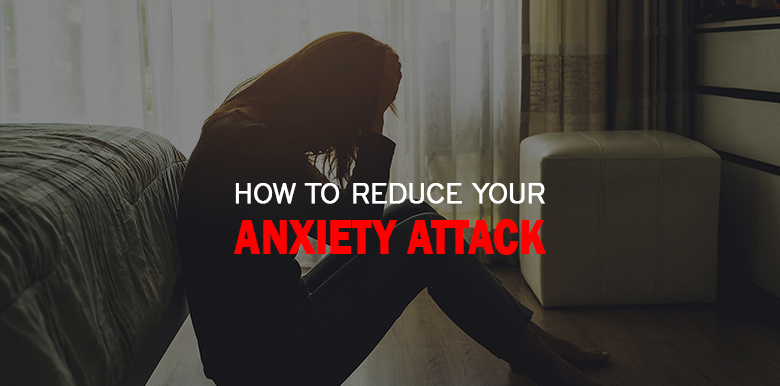Anxiety is a normal reaction to danger, the body’s automatic fight-or-flight response that is triggered when you feel threatened, under pressure, or are facing a challenging situation, such as a job interview, exam, or first date. In moderation, anxiety isn’t necessarily a bad thing. It can help you to stay alert and focused, spur you to action, and motivate you to solve problems. But when anxiety is constant or overwhelming—when worries and fears interfere with your relationships and daily life—you’ve likely crossed the line from normal anxiety into the territory of an anxiety disorder.
A little bit of anxiety can actually be a good thing at times; it helps keep us safe and out of trouble (our brains are biologically wired to protect us).
Unfortunately, there are millions of people living with excessive and difficult anxiety symptoms all of the time. It’s as though their “idle” is set too high and they are frequently plagued by fear, panic, and self-doubt, which can cause people to feel nervous and to engage in thoughts and behaviours that can affect their lives and health. It affects their day to day life so much that they don’t step out of their houses.
Steps for Reducing Anxiety
So while your biology might make you more prone to anxiety, this does not mean that you must simply learn to live with it. Anxiety attacks can be frightening, but there are steps that you can take to help control your anxiety and panic symptoms.
Practice Slower, Deeper Breathing

Deep Breathing
Slow down your breathing. Many people don’t pay attention to their breathing during an anxiety attack when their breathing usually becomes shallow, rapid, and erratic. This type of breathing decreases the oxygen in the brain, which will trigger fear and panic (again, part of our biological wiring). When you take slow deep breaths, you increase the blood flow to your brain, which will put you back in control.
Research has found that deep breathing can have a number of beneficial effects including lowering heart rate, improving mood, and lowering stress.
Change Negative Thoughts

Change negative thoughts
Pay attention to the thoughts in your mind and write them down to see if they make sense. Often in panicked situations, our thoughts are distorted and need to be challenged. So, it may be a good idea to kill the automatic negative thoughts (ANTs) that make us feel miserable.
Research has shown that automatic negative thoughts are positively correlated with psychological anxiety. This means that having these kinds of thoughts can be a trigger for feelings of nervousness, panic, and anxiety. By learning how to identify and then replace these automatic thoughts with more positive, realistic ones, you can better control your responses.
Face Your Fears

Face your fears
Don’t leave, run away from, or ignore whatever is causing you the anxiety (unless of course, it is life-threatening). You must face the fear or concern directly, or it will always have control over you and cause you anxiety.
You may need to talk to a trained psychotherapist about your anxiety and fears, especially if you’ve been exposed to the trauma of any kind. There are some proven therapeutic methods for helping people overcome the symptoms brought on by traumatic or life-threatening experiences, and those that cause post-traumatic stress disorder (PTSD).
Seek Help

Seek help
You don’t have to face your anxiety alone. Therapy with a trained mental health professional can support your recovery and teach you the strategies you need to overcome your anxiety. Some therapy approaches that may help with anxiety include:
Cognitive-behavioral therapy (CBT) is an approach that involves learning to identify the irrational or negative thoughts that contribute to anxiety and then working to change those thoughts and behaviours.
Exposure therapy is an approach that involves gradually being exposed to the source of your fears until these things or situations no longer trigger the anxious response. People usually start small (such as imagining the thing they fear) and then progressively work up to actually exposing themselves to the real thing (such as public speaking).
Eye movement desensitisation and reprocessing (EMDR) can be helpful for reducing stress and anxiety that stems from trauma. It helps to remove the emotional charges of traumatic memories.
Consider Anxiety Medications

Anxiety Medication
If you’ve been using strategies to control anxiety but still feel overwhelmed by feelings of worry or panic, it may be time to talk to your doctor about trying medications that can help control your anxiety.
Medications commonly prescribed for anxiety include:
-Selective serotonin reuptake inhibitors (SSRIs) such as Prozac (fluoxetine), Paxil (paroxetine), and Zoloft (sertraline)
-Benzodiazepines such as Xanax (alprazolam), Klonopin (clonazepam), and Valium (diazepam)
Buspirone
How to control sudden anxiety attack-
If you suddenly feel your heart pounding or experience other physical clues that a panic attack is barreling for you, try this- Start counting backward from 100. The act of counting at random intervals helps you to focus and override the anxious thoughts that are trying to sneak into your psyche. Or keep loose change in your pocket. Add a dime to a nickel, then add two pennies and so on. By controlling your thoughts and focusing on something outside yourself you will being to feel calmer.
